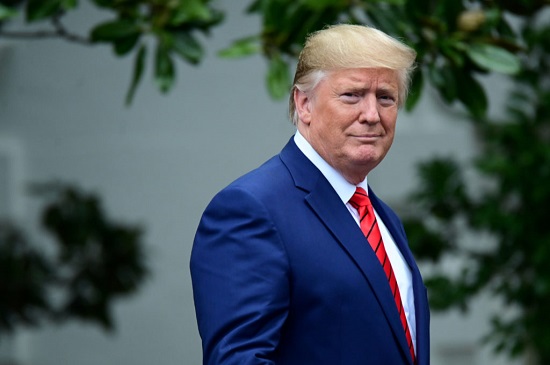This post has already been read 1645 times!
Defeated and discredited, humiliated and humbled, Donald Trump continues to deny the clear result of the US presidential election – which he lost by over five million votes – and refuses to concede to his challenger Joe Biden.
Instead he uses the media he controls – his Twitter account – to broadcast allegations of vote-rigging, corruption and ballot stuffing for which he has produced no evidence.
His foreign minister has publicly implied Trump will remain in office regardless of the result.
His defence minister has been fired for apparently refusing to deploy the army on US streets.
If this was happening in Africa, Goodluck Jonathan would already be on a plane on the way to mediate!
But it is happening in America, a nation Nigeria is supposed to look to as a democratic role model.
As Nigerians we must ask ourselves, could this happen here?
Sadly, the answer is yes.
Even by Trump’s standards, the idea that he will be able to remain in power remains far-fetched. He will leave the White House on January 20th 2021. But he will leave a legacy of chaos and mistrust behind.
Trump’s ability to get away with this behaviour stems from an existing lack of public trust in political and public institutions, fuelled by his use of social media.
And historically these institutions – in America as in Nigeria – have not helped themselves. People are right to be sceptical of their politicians and their government. They have done plenty for people to be sceptical of.
American broadcasters have cut away from Trump’s baseless claims of electoral corruption. But these allegations continue to be spread far and wide by devout supporters on social media, discrediting the entire democratic process with every share.
It is entirely possible that a Nigerian Donald Trump could lose an election but remain in office by using social media to exploit longstanding mistrust of our political protests.
Which is why it is critical that we take steps to build trust between electors and elected and in faith in the integrity of our democratic process.
Recent events in Nigeria have once again ignited calls for greater regulation of social media – which I believe are no more feasible than desirable and more likely to end in protests.
As we have seen in the recent #EndSARS protests, digitally savvy young Nigerians are perfectly adept at using VPN to circumvent internet shutdowns and digital currency to fundraise. They will find a way around any online obstacle you put in their way, at great cost to your credibility.
More important, a social media crackdown will do nothing to stop fake news being spread by a Head of State themselves. If we cannot trust official channels, who can we trust?
Facebook, Twitter, Whatsapp and YouTube have proved themselves completely inadequate at preventing their platforms being used for the purposes of political propaganda. And with good reason – they were never designed for such purposes. Mark Zuckerberg set up Facebook to rate the appearances of pretty girls he went to university with!
At the digital democracy campaign I lead, we believe the answer is for a now more appropriate social media platforms, based on trust and transparency.
A better lesson to learn from the #EndSARS protests is to consider how protestors themselves frequently flagged inaccurate online information, even when it supported their cause. They realised that the most important thing was that information associated with them was credible. Trust matters.
This is one of the reasons we created Rate Your Leader, a free app which puts voters in direct person to person contact with their local leaders and enables them to start the dialogue that leads to trust – as well as allowing them to signal to their own networks that they think the information they have received is honest and truthful.
No spin, no distortion, no lies – just one on one dialogue, publically rated for accuracy and credibility.
Rate Your Leader also allows local representatives to get a real-time insight into the things that matter most to the people who elect them – and how to address them.
A social media crackdown will not prevent us from finding our own Donald Trump trespassing in Aso Villa.
The answer instead is taking advantage of social media to communicate and engage better, between different beliefs, different backgrounds and different generations and to build trust between people and politicians.
Joel Popoola is a Nigerian tech entrepreneur, digital democracy campaigner and the creator of the Rate You Leader app. You can reach Joel on Twitter via @JOPopoola



